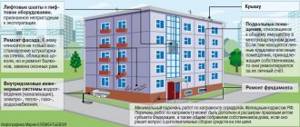Is it possible to bequeath a non-privatized apartment?
A non-privatized apartment is a residential premises that belongs under the right of ownership to the state or municipality. Such housing is provided to those in need of improved living conditions under a social rental agreement.
To obtain ownership of an apartment, it is necessary to privatize it. If a citizen has not formalized privatization, then he does not have the right to dispose of this premises. That is, he cannot sell it or give it away.
A will is a one-sided transaction. Unlike other methods of transferring ownership, such as sale or gift, any property can be specified in a will. Including those that do not belong to the testator. Perhaps the citizen is just planning to formalize privatization, so he includes an apartment in the declaration of will in advance.
When registering a will, the notary does not ask the testator to provide him with title documents. Therefore, a citizen is free to enter into the document absolutely any property that he already owns or is planning to acquire.
Thus, the tenant of an apartment under a social tenancy agreement or members of his family (living in it) can bequeath a non-privatized apartment.
Take the survey and a lawyer will share an inheritance action plan in your case for free
Who would you advise to privatize their apartment, and who not?
Lonely people or people who drink may be advised not to privatize their housing. For others, the advantages of privatization are obvious. I think it is unreasonable not to leave behind an inheritance in the form of a living space to your descendants, or even just to a good person caring for you, or to a friend, if you don’t have your own heirs, why not? In addition, elderly people are not always testators.
The annuity institution is a good way to ensure a decent old age. And in the event of a meeting with an unscrupulous rent payer, there is always the opportunity to terminate the contract and demand compensation for losses caused. In these cases, the court often defends the annuity recipients.
In the case of a privatized apartment consisting of more than one room, the second or third can be rented out for commercial rent. Relevant for people with low incomes. It is also possible to rent out a non-privatized apartment (room) (sublease), but only with the written consent of the state. In this case, a sublease agreement can be concluded provided that after its conclusion, the total area of the corresponding residential premises per resident is no less than the accounting norm (Moscow: 10 sq.m.), and in a communal apartment - no less than the provision norm (Moscow: 18 sq.m.).
Improving living conditions through a privatized apartment will be faster than registering with the city for those in need of such improvement and, moreover, waiting for it. At the same time, it is not always necessary to pay additional funds after selling your home to pay extra for a new one, because the good alternative is that depending on the location of the housing (center or residential area, other subjective preferences and benefits), as well as depending on the market (secondary or new buildings), the cost of an apartment can differ significantly, while the composition of the rooms and the size of the area can lead to completely different results.
Update from December 18, 2020:
Currently, every citizen can make a decision on the privatization of housing without haste. From February 22, 2020, according to the adopted law, privatization is extended indefinitely and remains free.
11.01.2018
On this topic:
26.08.2020
Get the best price: LSR Group has launched three new houses for sale
More details
25.08.2020
Promotions in the III building of the iD Murino residential complex and special offers on military mortgages
More details
17.08.2020
The school in the NEWPITER residential complex is recognized as the best social facility in the Leningrad region
More details
07.08.2020
Digest of construction projects
More details
29.07.2020
The readiness of the Polis on Moskovskaya residential complex exceeded 70%
More details
28.07.2020
The Sosnovka residential complex is included in the shortlist for the Urban Awards 2020
More details
20.07.2020
Experts from Polis Group: The market has all the conditions to invest money in real estate
More details
20.07.2020
RSTI Holding supported the project “In the Footsteps of Military Glory”
More details
16.07.2020
When you don’t want to wait: promotions for apartments in new buildings due for delivery in 2020
More details
10.07.2020
Start of sales of phase 3 of the Sunday residential complex
More details
Is it possible to inherit a non-privatized apartment?
But with the inheritance of a non-privatized apartment, the situation is more complicated. As a general rule, heirs have no rights to it.
A non-privatized apartment is the property of the municipality or the state. The testator does not have ownership rights to it, therefore, the heirs cannot claim it.
That is, if the heirs turn to a notary to include a non-privatized apartment in the inheritance, he will refuse them. But the law provides a number of ways to inherit such housing.
Who will get the privatized apartment after the death of the owner?
What happens if the applicants, by law, do not accept the inheritance or refuse it? They will lose their rights. The inheritance will pass to relatives of the other line. Deadlines for submitting documents depend on several factors. If a person refuses the inheritance or is eliminated, then the next-ranking relatives are given 6 months to complete the paperwork. The countdown begins from the day they acquire such a right. But, if the primary heirs did not accept the property, then the next applicants are given 3 months .
Options for inheriting a non-privatized apartment
Heirs can obtain rights to a non-privatized apartment as follows:
- Complete the privatization started by the testator. This procedure is carried out in court. It can only be initiated by the heir of the deceased.
- Renew the social tenancy agreement. This opportunity is available to family members who lived with the deceased (even if they are not part of the heirs).
Let's take a closer look.
Completion of privatization
As judicial practice shows, heirs have the opportunity to formalize the privatization procedure if the testator began it during his lifetime.
In order for the court to satisfy the requirement to include a non-privatized apartment in the inheritance, it is necessary that:
- The testator collected documents for privatization.
- The testator submitted an application to the authorized body.
- The applicant did not submit a request to withdraw the documents.
Law of the Russian Federation dated July 4, 1991 No. 1541-1 establishes a two-month period for checking documents and making a decision on privatization by specialists of the district administration. Therefore, a situation may well occur where the applicant dies before receiving an answer.
In accordance with Art. 8 By Resolution of the Plenum of the Armed Forces of the Russian Federation dated May 29, 2012 No. 9, if the testator did not have properly executed documents for the apartment confirming ownership, the heirs must go to court:
- before the expiration of 6 months from the date of death of the owner - on inclusion in the inheritance;
- after the expiration of 6 months - on inclusion in the estate and recognition of property rights in the order of inheritance.
In the second situation, the heirs receive rights to the apartment without additional contact with a notary office. Registration of property rights in Rosreestr in this case is carried out on the basis of a court decision.
Conclusion of a social tenancy agreement
If the testator died before submitting documents for privatization, then it will not be possible to include the property in the inheritance. But the law provides for the possibility of transferring a social tenancy agreement to family members of the deceased.
In accordance with Art. 69 of the Housing Code of the Russian Federation, family members of the deceased can contact the district administration to re-register the contract in their name. A prerequisite is the fact of living in the apartment after the death of the tenant.
That is, re-registration of a social tenancy agreement has nothing to do with inheritance. Legal successors do not receive ownership of the apartment. But they can continue to live indoors if the following conditions are met:
- citizens lived in the apartment together with the testator;
- the heirs had permanent registration in this premises;
- citizens are included in the social tenancy agreement as a member of the employer's family.
Thus, if the heir did not live in the apartment and did not have registration for it, then he does not have rights to the apartment.
After the social tenancy agreement has been reissued, the heirs can independently privatize the housing in their own name.
Need help with an inheritance?
Lawyers will answer your inheritance question free of charge and in detail. Ask a question so you don't waste time reading!
Eviction with children
After a tenant is evicted from non-privatized housing, no one sends him to the street. But for some reasons, he can be evicted without providing housing in return. Such eviction threatens those individuals who have behaved in a certain way, for example, they have received complaints against them for fighting, insults or noise. The same eviction is threatened if the tenant caused damage to the apartment itself.
The procedure for eviction will be as follows. First of all, the resident is given a warning so that he changes his behavior. The landlord does this based on evidence of such behavior. If the tenant does not change his behavior for some time, he is evicted by court decision.
If you have not found the answer to your question, then you can get an answer to your question by calling the numbers ⇓ Free legal consultation
If it is necessary to evict a tenant, the legal requirements apply, according to which minor children must live with one of their parents until they are 18 years old. That is, they must be registered in the apartment in which their parent or guardian lives. A minor can be evicted from an apartment only if he can be registered elsewhere. Even if the other room is smaller.
When considering a claim, the judicial authority will face several questions. For example:
- what is the reason for the eviction of the tenant;
- what causes the emergence of a large amount of debt on utility bills;
- whether the evicted tenant has a regular income;
- whether the evicted tenant has other housing for relocation;
- whether the evicted tenant has minor children.
All materials attached to the case are studied by the court quite carefully, and both the defendant and the plaintiff are heard. After which a decision is made on whether to evict or remain in the apartment. If the court decides to evict, it will be transferred to the executors.
At the same time, it is important to remember that eviction can only be carried out by a court decision, which means that in the event of controversial situations with the administration, there is no need to evict from the apartment at their first request. If you move voluntarily, it will be impossible to prove that the eviction occurred on illegal grounds, even through court.
The administration is obliged to provide some time to eliminate debts, and not evict the tenant immediately. If a resident has any questions when a dispute arises with the administration, then it is worth consulting with a lawyer experienced in such matters. Only a specialist can know the exact actions in a given situation, since depending on the region, different requirements may be imposed on residents.
If you have not found the answer to your question, then you can get an answer to your question by calling the numbers ⇓ Free legal consultation
The procedure for free provision of real estate for use is provided for by existing social programs at the federal and regional levels. How to get a non-privatized apartment can be understood by the listed criteria for forming a queue:
- minimum income (low-income status);
- the amount of space for each family member does not meet the standards (for Moscow - 10 sq. m.);
- lack of other housing;
- emergency condition of the house, planned resettlement, renovation.
Separately, they consider the impossibility of living in the same apartment with a sick person who poses a threat to the life and health of neighbors. In this case, for a positive decision by the municipality, an appropriate medical expert opinion will be required.
A voluntary move is not accompanied by great difficulties. Forced eviction may be initiated by:
- apartment residents;
- neighbours;
- municipality;
- interdepartmental commission.
Can they be evicted from a non-privatized apartment for singing loudly at 3 a.m. or for refusing to pay for consumed electricity? The law establishes the following grounds for appealing to the courts:
- large rent arrears (6 months or more);
- intentional damage to an apartment (common property);
- repeated malicious violation of the interests (legal rights) of neighbors;
- inappropriate use of housing;
- transferring the building to the category of objects for demolition;
- implementation of the renovation program;
- deprivation of a tenant's civil rights by a court decision;
- seizure of land to solve state problems;
- change in the configuration, size or purpose of premises after reconstruction;
- relocation for major repairs, reconstruction;
- transfer of real estate to a religious organization.
Can municipal employees evict a non-privatized apartment on their own? Such actions are prohibited. They qualify as arbitrariness. You can complain to the prosecutor's office. It should be emphasized that when considering cases, the court takes into account the real circumstances:
- the financial situation of the defendant;
- presence of dependents and minor children in the family;
- age and health status.
Advantages
Who inherits a non-privatized apartment?
If the apartment is not privatized, then only citizens who are included in the social tenancy agreement as family members have rights to the premises. Other persons cannot claim the property.
From the moment the housing is included in the inheritance, the following may claim rights to the property:
- compulsory heirs (Article 1149 of the Civil Code of the Russian Federation);
- heirs under the will (if the apartment is indicated in the will);
- heirs at law (if the premises are not included in the will).
Separately, it is necessary to identify compulsory heirs. This is a special category of legal successors. A compulsory heir is a spouse, child, parent or other person who was dependent on the deceased.
Obligatory heirs claim a share of no less than ½ share of the property provided by law. If the testator did not provide for a share for them in the expression of will, then they will be able to claim a share in the non-privatized apartment after including it in the estate.
Missed the deadline for accepting an inheritance?
We will tell you how to proceed when restoring the inheritance period
What documents need to be provided to re-register an apartment?
Before making the first visit to the relevant service, a person needs to collect a basic package of documents, namely:
- identification;
- registration documents of the applicant;
- certificate for living space from the BTI;
- warrant for living space;
- a rental agreement drawn up for the person who is the applicant;
- a certificate indicating all registered people;
- a power of attorney certified by a notary for the person who is a party to the social tenancy agreement.
When the above package of documents is provided, the heir’s application will be considered at the registration service. It is this service that checks all provided data for the veracity of the specified data.
After the check is completed, the municipal service will invite the applicant to draw up an agreement on the transfer of ownership of the apartment. In this case, ownership will only come when a person declares the privatization of the living space. It is complete privatization that provides the legal opportunity to enter data about an apartment into a unified register.
It is worth emphasizing that only in this way does a person acquire rights to a real estate property that has not been privatized.
By will
There are 2 types of wills:
- General. The text of the document states that all property, no matter where it is located and no matter what it is, passes to a specific recipient.
- With the distribution of property. The testator himself distributes the property among the heirs.
If the testator has included a non-privatized apartment in the will, then in accordance with the general will, the heir will be able to formalize it when he includes it in the inheritance.
If the will distributes the property of the deceased, then the heirs under the will will be able to claim the apartment only if the testator has included it in the document. Otherwise, even if it is included in the inheritance, the rights to the apartment will be transferred to the heirs by law.
Can I be evicted for debt?
The main condition for not being evicted from non-privatized housing is timely payment of utilities. In addition, you should treat your apartment with care and communicate with your neighbors respectfully. It is important to remember that even if the tenant has committed any actions that give rise to his eviction, he is first given a short period of time to correct it.
That is, the debt incurred by the tenant can be repaid, and the behavior corrected. If, after the expiration of the given period, the tenant does not improve, then an application is filed against him in court. If the tenant does not agree with the court's decision, he can remain in the apartment and file a counterclaim. To do this, of course, it would be better to contact an experienced housing lawyer. A lawyer may be able to find a way to avoid eviction from the apartment.
In order to be able to evict tenants for non-payment of utilities, it is necessary to perform certain actions that are regulated by the Housing Code of the Russian Federation. As a rule, the eviction of tenants does not occur on a voluntary basis, since rarely does anyone want to vacate the apartment themselves. Therefore, such tenants are mainly evicted by decision of the judicial authorities.
Arbitrage practice
If the testator contacted the district administration, submitted all the documents and submitted an application for privatization, then it will not be difficult for the heirs to declare their rights. It is enough to initiate a lawsuit.
Example. Victor went to court in order to recognize the privatization agreement as valid, to include the non-privatized apartment in the inheritance and to recognize the right of ownership through inheritance. The man explained that he is the heir of the first stage of the property of his late wife. But the woman just submitted documents for privatization, and did not have time to receive a response from the district administration. The applicant believes that the death of the applicant is not a reason for refusing privatization. Therefore, he asks to include the disputed apartment in the inheritance estate. The district administration did not object. Therefore, the court satisfied the applicant’s demands (Decision of the Central City Court of Komsomolsk-on-Amur, Khabarovsk Territory dated February 27, 2020 in case No. 2-461/2018).
As practice shows, the district administration extremely rarely objects, forgiving the claim. But to recognize the heirs’ right to an apartment, specialists need a court decision. Therefore, if the testator initiated the privatization process before his death, then it will not be difficult for the heirs to certify their rights through the court.
Sale, gift and inheritance
You can only dispose of a privatized apartment at your own discretion. To activate this process you need to get:
- consent of all residents;
- refusals of people who do not want to participate in privatization.
The application is submitted to the municipal administration. If the address of residence has changed since July 21, 1991, they confirm the absence of housing previously received under this program. Minor children are required to participate. After 18 years of age, they can exercise their personal right to privatize other real estate.
It is impossible to sell non-privatized housing. The completion of any transaction involving the alienation of someone else's property is prevented by a record of state ownership in Rosreestr. Responsible employees will not accept documents for registration if this violation is discovered. Likewise, it is not possible to transfer a share free of charge: by will or deed of gift.
An exception is the death of the employer after the transfer of documents for privatization, but before signing an agreement with the municipality. In this situation, the heirs have the right to claim the corresponding property.
Lawyer's answers to frequently asked questions
My father and his half-brother were registered in a non-privatized apartment. Father died. Can I claim a share in the apartment?
If the father did not apply to the administration to privatize the apartment, then you do not have a claim to a share in the housing.
The grandmother lived in a municipal apartment with her son. She died. And her son registered a stranger in the apartment. How can I protect it from scammers and will I be entitled to a share?
A municipal apartment is the property of the district administration. Therefore, you are not entitled to a share in the inheritance. Strangers will not be able to take away the apartment from the grandmother's son, since he does not have ownership rights to it.
I live in a non-privatized apartment. Until recently, my father lived with me. Now he is dead. And the collectors claimed rights to the property, since he owed 50,000 rubles. Collectors claim that I accepted the inheritance because I live in an apartment. Do they have the right to take away housing?
No. The inheritance cannot pay off the debts of the deceased if the property is in a municipal fund. If you have not actually accepted other objects of the deceased’s property, then you may not enter into an inheritance so as not to pay the debts of the deceased.
After my grandfather's death, I was left with a municipal apartment. No one is registered in it, but I was registered before. Can I privatize it?
If you are listed in the social tenancy agreement as a member of the employer’s family, then you can try to apply to re-register the social tenancy agreement. The district administration can satisfy your request.
A grandmother and grandson lived in a municipal apartment. After the death of her grandmother, her daughter wants to get a share in the apartment. Can she privatize the apartment?
If at the time of the grandmother’s death the citizen is not registered in the apartment, then she will not be able to lay claim to the property.
How can the relatives of the deceased use the apartment?
If the deceased was a tenant of the apartment under a social tenancy agreement, then with his death the agreement becomes invalid. But his relatives (spouse, children, parents and other family members) can re-register the contract for themselves.
After which, they will legally reside in this apartment.
When will the apartment be returned to the state?
If the testator did not apply to the district administration to privatize the apartment, and other family members were not registered in the premises, then the contract is considered terminated and the housing is considered vacant.
A similar situation arises if citizens actually live in the apartment, but they are not included in the social tenancy agreement. This is considered unauthorized entry. Therefore, the tenants are subject to eviction, and the apartment is to be returned to the state fund.
Don’t know what documents to prepare for accepting an inheritance?
Our lawyers will advise on the list of documents in your case
Who is the employer
Nowadays, real estate owned by the state is leased to individuals, which is formalized in a social tenancy agreement. Previously, the basis for moving in was a warrant, but after changes were made to the Housing Code of the Russian Federation, an agreement was presented as it.
Those who received housing in the distant eighties still live in the apartment under a warrant. No one has the right to evict them. He is the only responsible person for paying utilities, as well as maintaining the premises. Based on this document, a person has the right to privatize real estate.
Now a person who owns residential government premises is called a tenant on the basis of a social tenancy agreement.
Is it possible to split utility bills?
Is it possible to get free housing in the village? Read here.
How the owner has rights in relation to property, read the link: https://novocom.org/zakony-i-prava/zashhita-pokupatelej-nedvizhimosti/prava-sobstvennika-v-otnoshenii-imushhestva.html
Important! The legislation of the Russian Federation defines a number of rules for persons applying for state real estate:
- having citizenship of the Russian Federation,
- the age of majority of the applicant to receive living space,
- the legal capacity of the applicant, the ability to maintain housing in proper condition.
The rights of the tenant are described in Article 67 of the Housing Code of the Russian Federation. He is the subject of the contract. Any family member has the right to conclude a social rental agreement. The common area of the premises can be divided between relatives. However, such a procedure is practically not carried out, since it is not practical.
Obtaining a social tenancy agreement.
Municipal Housing Law
Also, a citizen living in municipal housing has the right to privatize it as a property . This issue is regulated exclusively by the norms of housing law, in particular the federal law on privatization. This gives a person the right to acquire private ownership of housing, dispose of it at his own discretion, and live in it with all legal rights.
The law on municipal housing contains only 9 chapters , each of which regulates one or another issue that may arise in the process of using municipal property. In most cases, when conflicts arise, they refer to it. In addition, another main regulatory act is the Housing Code, which also contains articles on municipal housing.
We recommend reading: Cash subsidy for military personnel in 2020






